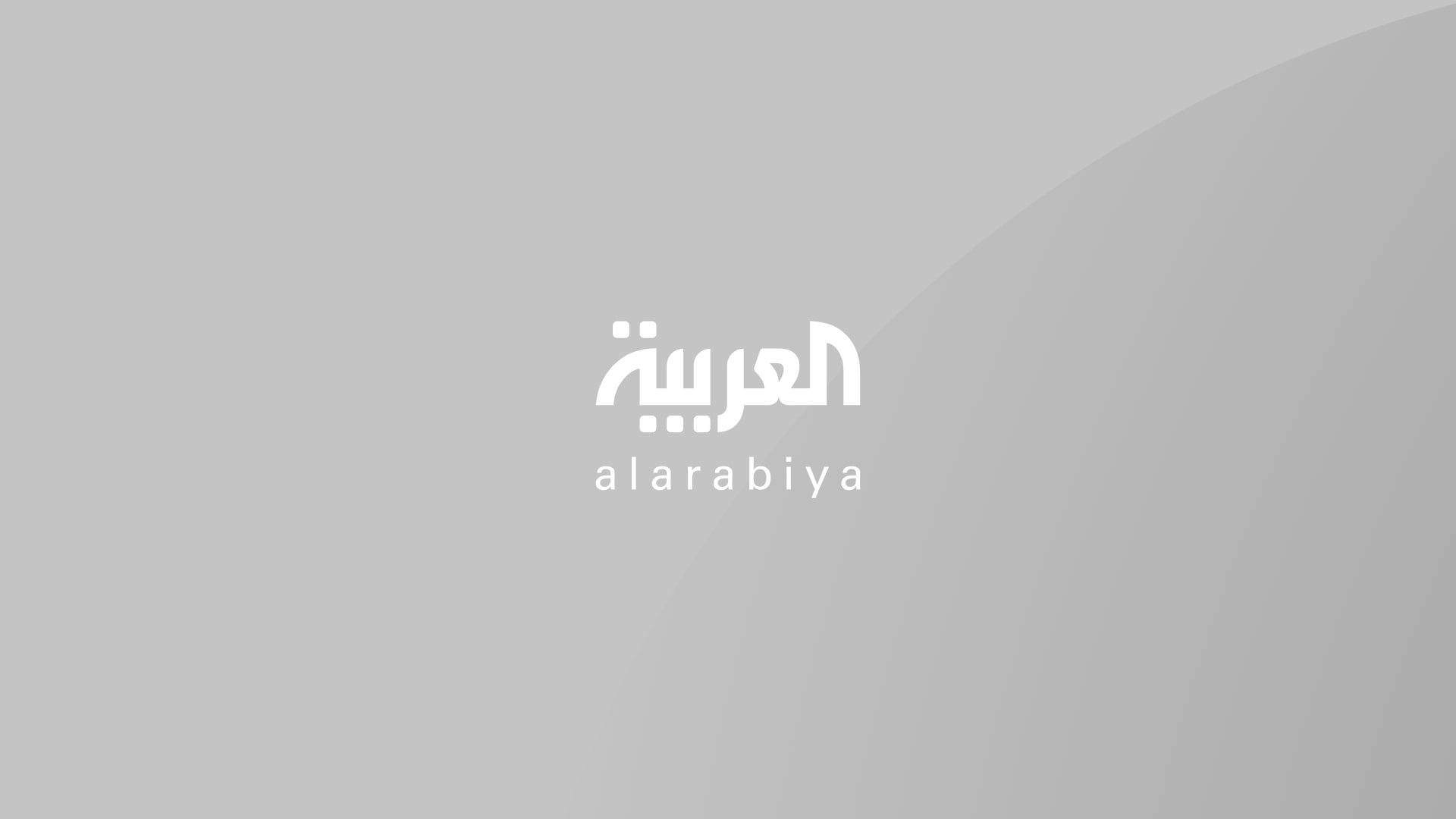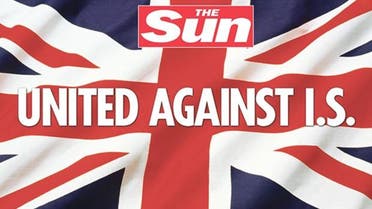Does UK #UnitedAgainstIS drive, demonize or empower Muslims?
Does this specific hashtag campaign against ISIS demonize or empower Muslim communities in the West?
#UnitedAgainstIs is the latest social media campaign to be launched by the UK’s Sun Newspaper amid a growing list of hashtags showcasing solidarity against the militant extremist group ISIS. With an eye catching front page of a Muslim woman wearing a Union Jack for a headscarf, and seven pages dedicated to highlighting the issue of extremism, questions still persist about the effectiveness of such campaigns.
“We are urging communities across the country to make a stand to prevent barbaric Islamic State extremists radicalizing British youths,” stated the Sun, as part of its call for Brits of all faiths to defeat ISIS. It also included an editorial in which it strongly denounced Islamophobia: “We must not give way to Islamophobia. The military success of IS[IS] vastly exaggerates its support.”
To support this campaign, cut out the poster on Page 3, take a selfie with it and use the #UnitedAgainstIS hashtag pic.twitter.com/r7zsYEBjn4
— The Sun (@TheSunNewspaper) October 8, 2014
However, the UK’s largest newspaper has divided opinion, both in the media and amongst social media communities about whether this specific hashtag campaign against ISIS demonizes or empowers Muslim communities in the West.
Some journalists praised the unprecedented nature of the Sun’s coverage for the campaign, with Guardian journalist Roy Greenslade describing it as a “bold bid to prevents Brits becoming ISIS recruits.” Whilst at the Huffington Post, the journalist Jack Sommers, highlighted the Sun’s campaign as a “welcome change” for its stance against Islamic State (IS), with particular emphasis of building support for British Muslims, “a group it has previously been accused of slandering.” It then went on to outline the six recent stories it has come under fire for being Islamophobic.
One of the more scathing critiques came from Nesrine Malik from the Guardian, in particular about the use of the imagery of the Union Jack which to her indicates that the Sun believes “Muslims are an enemy from within,” and that “Muslims have to prove their British credentials.”
Wrote this about The Sun’s disingenuous and counterproductive ‘United Against Islamic State’ campaign http://t.co/wdb57GLRUv
— Nesrine Malik (@NesrineMalik) October 8, 2014After following the online debates and reactions, Madiha Rehman, a 31 year old Professional from Birmingham, explains that she and her network of Muslim female friends all found the imagery refreshing in contrast to some of the objections. However, she goes to add “ it makes me feel nervous coming from the Sun.
“Then you read the editorial and you realise there’s a pervading sense of them and us. If they really felt Muslims were inclusive of the UK, then they would use the pronoun “our” before “British Muslim imams. The sun simply feels synonymous with Islamophobia.”
See also: #MakingAStand: British Muslim women launch anti-ISIS culture drive
The iconic image of the British Muslim woman for the Sun’s front page was originally used in the launch of #MakingAStand, by Inspire, as part of its campaign to prevent Muslim women joining with ISIS in Syria and Iraq. The Sun’s campaign coverage provided a platform for the co-director of Inspire Sara Khan to explain her support for the UnitedAgainstIS campaign :”British Muslims are coming together to say that the so-called Islamic state has nothing to do with our faith. It’s a twisted version of Islam that we condemn utterly. We won’t tolerate Great Britain being poisoned by extremist propaganda.
“We oppose IS and extremism. We see how young people are being radicalized and fear that our children will be next.”
Kalsoom Bashir,Co-Director of Inspire, spoke to Al Arabiya News, saying their own hashtag campaign was designed to encourage Muslims to take a stand and does not ask them to apologize for their faith.
“When hundreds of young Muslims are leaving the UK to join IS, brainwashed into believing this is true Islam, then Muslim women like myself as well as the many who joined me last month, feel we must make a stand.
“The stand we are making includes as public a statement as possible. It's not surprising however, that some, unlike the Sun, have chosen to ignore the activism of Muslim women who spearheaded this campaign. Some people on social media have ignored and twisted our words. We’re not asking any Muslim to apologize for their faith.
“The Sun’s reach is indisputable. If its #unitedagainstIS campaign and our #makingastand can stop a single teenager packing their bags and leaving for Syria or Iraq, isn’t that a victory against extremism?”
The Sun's campaign unites us against Islamic State & Islamophobia | @laraprendergast #MakingAStand #UnitedAgainstIS http://t.co/RzpdMFpb1k
— Sara Khan (@SaraKhanInspire) October 9, 2014
However, as the battle for hearts and minds persists online, some critics remain skeptical about the impact of such online campaigns. In observing the recent social media campaign by the Sun, Dr Akil Awan, professor of Political Violence &Terrorism at Royal Holloway, University of London explains:
“It’s a very interesting campaign - from my cursory glance at Twitter/Facebook etc, there has been relatively little social media diffusion.”
Speaking to Al Arabiya News, he goes on to explain: “I doubt these sorts of campaigns make really any difference at all. ISIS is so self-evidently brutal, barbaric and universally hated that it seems banal to ask if people are against them!? For that minuscule minority of young people who may still think of travelling to Syria, I doubt this campaign, even crosses their radar. So it’s not really designed to stop people joining ISIS.”
“If there is a benefit, it would more likely be for the Sun’s own internal audience against blanket Islamophobia, who might perhaps be able to better nuance their criticism of ISIS, without tarring all Muslims by association?”
-

British ISIS deserters stranded in Turkey: report
Some 100 Britons who deserted ISIS are stranded in Turkey because they fear to ... Middle East -

Report: Turkey traded UK fighters in swap with ISIS
The two men were among ten European Union citizens on a leaked list of names ... Middle East -

Father of UK journalist pleads ISIS to free son
John Cantlie appeared in a video released last month by ISIS News -

UK joins military campaign against ISIS in Iraq
The British parliament passed the motion by 524 votes to 43, a majority of 481 World News -

ISIS will not dictate UK foreign policy: Hammond
Hammond said Britain would not pay the ransom demands by ISIS Middle East -

UK female jihadists run ISIS sex-slave brothels
The Brothels, operated by the female “police force” called the al-Khanssaa Brigade ... Variety -

UK shop owner forced to deny links with ISIS terror group
A UK-based shop called “ISIS” is facing a hate campaign Variety -

ISIS posts video of held UK reporter John Cantlie
Cantlie said he was captured after travelling to Syria in November 2012 Middle East

